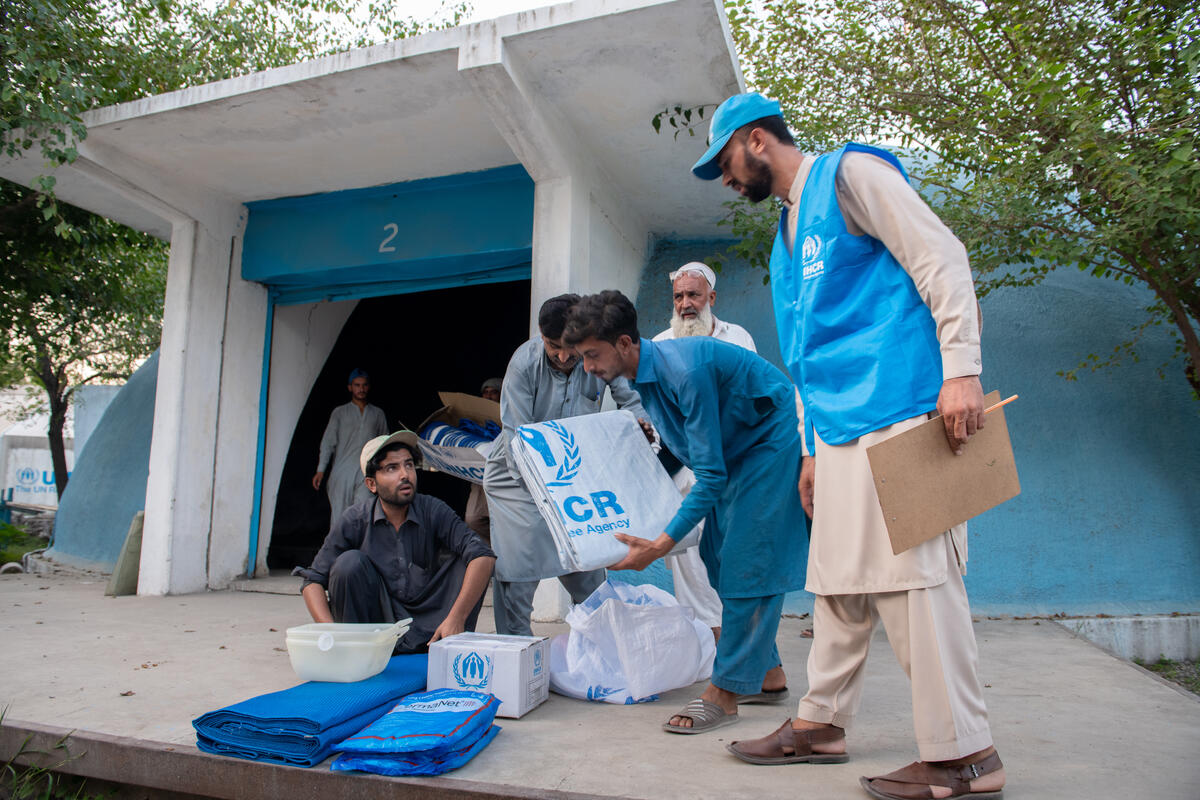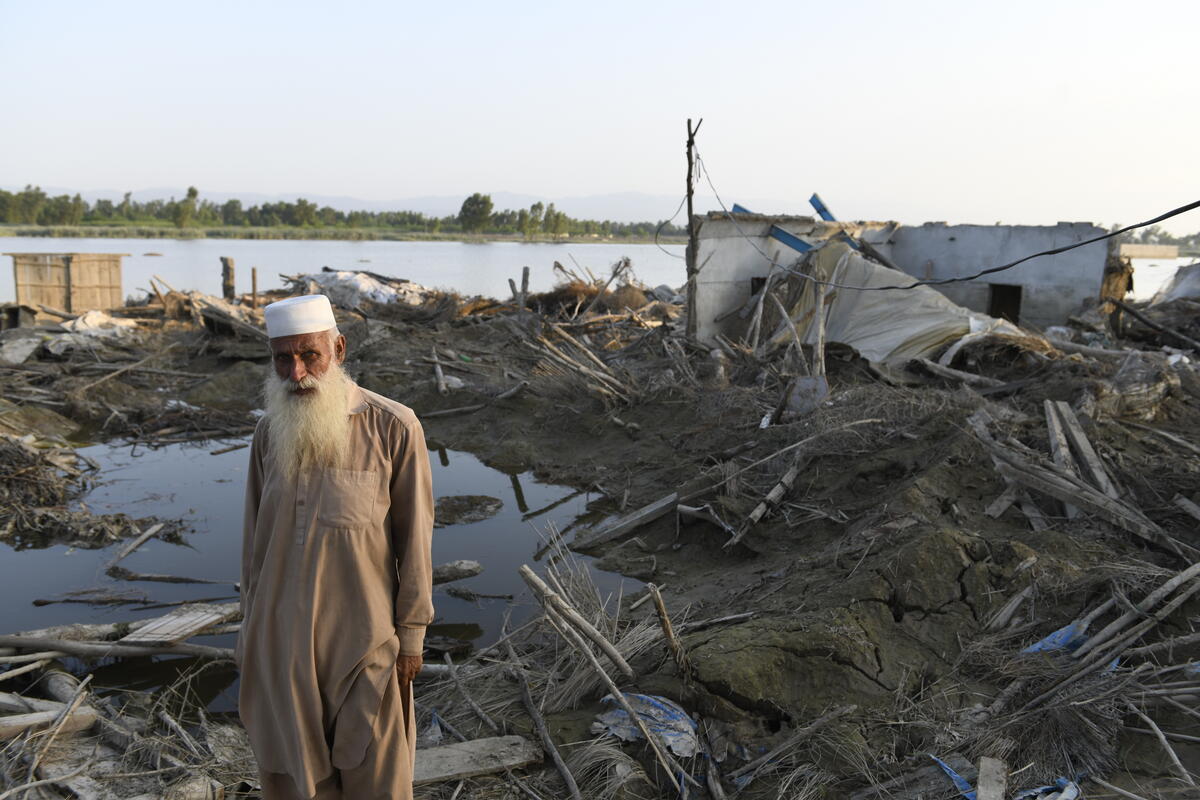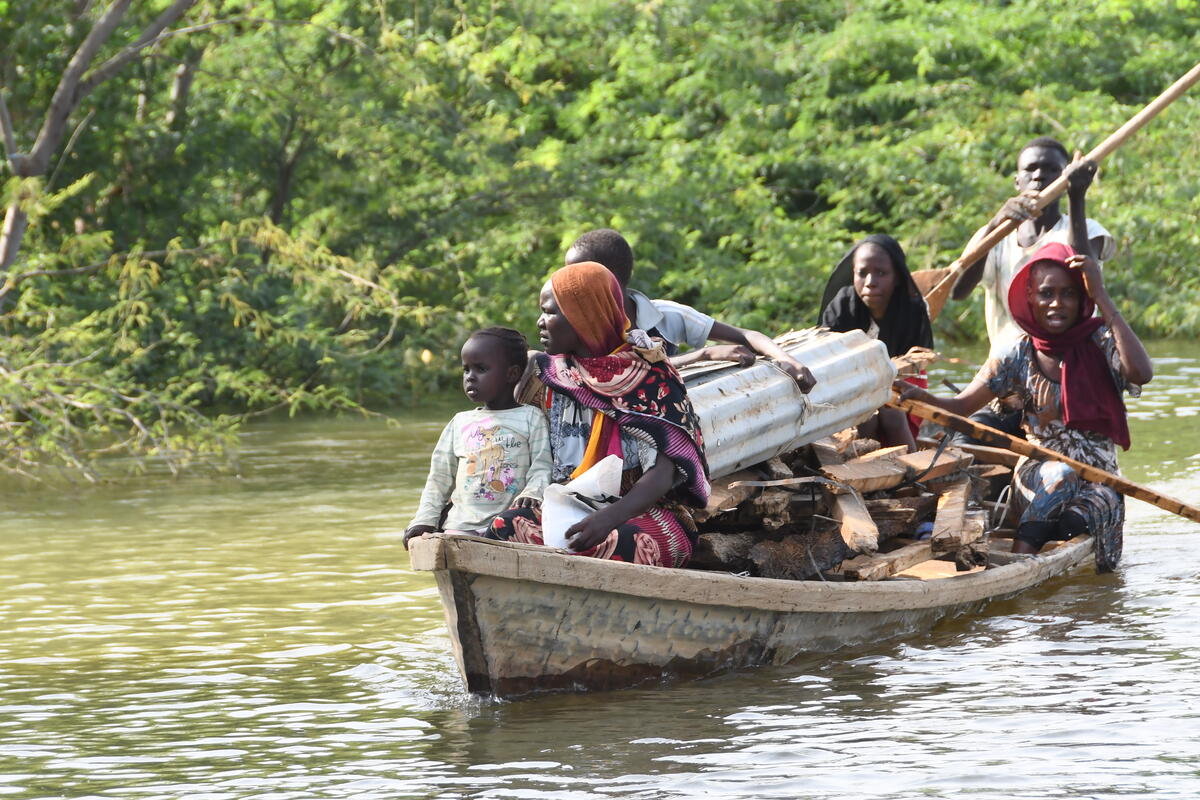Flood victims in highlands of north-west Pakistan face a tough winter
Flood victims in highlands of north-west Pakistan face a tough winter

UTROR, Pakistan, September 23 (UNHCR) - While most of the victims of Pakistan's devastating floods live in the country's lowlands beside the Indus and other rivers, a significant number are located in remote highland regions in the north-west, including Upper Swat district. The waters have returned to normal levels in these areas, but with winter approaching the locals need help.
The UN refugee agency has begun addressing their needs, launching an airlift of shelter supplies last Sunday to flood victims in the Kalam Valley, where the first snows are expected in about a month. It's a desperately poor area and the adverse affects of the flash floods will likely be felt here for a long time.
"It was at the end of July ... the roads were washed away," Durdana, a mother of six, told UNHCR staff who arrived by helicopter in Utror, which was cut off from the outside world when several bridges collapsed. Durdana said she had no money and could not afford flour to make bread. "We only ate boiled turnips and potatoes."
The most important need in the village is for shelter because 300 houses were swept away. The UNHCR airlift has brought in 56 shelter kits so far. These provide a large warm room for winter, allowing families to rebuild. But many people also lost their winter clothing and this is an urgent need. UNHCR plans to bring non-food aid items to the valley once the main road is open again soon.
'"The scale of devastation is enormous. But after the initial emergency response, the next stage of our winter aid effort is focusing on getting a warm room for some of the most vulnerable people who have lost everything in the flash floods. The people in Upper Swat will be the first to face the harsh winter," said Mengesha Kebede, UNHCR's representative in Pakistan.
Forty-year-old Durdana's house was spared because it lies on higher ground, but she and her family still face an extremely tough winter and hard economic times ahead. She hoped that her husband would arrive soon with some food stocks and household items.
The restaurant where he worked - near Mingora, capital of Swat district - was destroyed by the floods and that means an important source of livelihood has gone. When UNHCR arrived, he was away looking for work in Mingora.
Many others are in a similar fix, as well as losing their own homes. Moreover, a lot of cultivable land, including a plot farmed by Durdana and her husband, was lost. They depended on this smallholding for most of their food.
And while some fields did survive the flash floods, the villagers face the problem of how to transport their vegetable produce to market in Mingora. They need the cash to pay for urgent needs.
And transport is also an issue in public health as people with a serious malady need to be taken down the Kalam Valley to the nearest hospital in Mingora, which takes several hours to reach by vehicle when the road is open.
One villager, Zeenat, managed to hitch a lift on the helicopter to Utror after taking her four-year-old daughter to hospital in Mingora. "My daughter was very ill [with a high fever]. The doctor in my village gave her some medicine, but it did not improve her condition. I had to wait for two days to get on a helicopter to Mingora," she said.
She also had to pay for food and a hotel room, but at least her daughter was well on the road to recovery. Now they face the harsh winter.
By Rabia Ali in Utror, Pakistan








